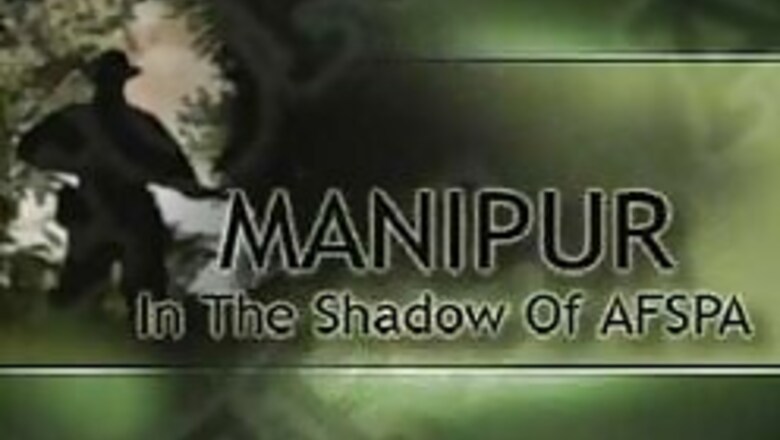
views
New Delhi: Sharmila was 24 years old when she witnessed the gunning down of 10 people in retaliation to one of their trucks being blown up.
The event led to several protests in the state, but Sharmila took the protest to a another level.
She embarked on a hunger strike, which is still on. Her organs have deteriorated and she is now being nasally fed in a high security prison in Imphal.
Today, Sharmila is an icon for many Manipuris, the emblem of their protests against the 48-year-old Armed Forces Special Powers Act, the controversial act that has given the Army unrestricted powers in the North-East.
Meanwhile, there have been several attempts to repeal the Act. Two years ago, a group of naked women marched to the campof the Assam Rifles in Imphal to protest the killing of 29-year-old Manorama, who was shot dead allegedly by the Army.
Human rights activists believe it is an example of the unrestricted powers of Armed Forces Special Powers Act.
"The Army goes everywhere. It can pick you up at night on suspicion. No one in the country is aware about the North-East. They are cut off from the world. The government is quiet on it. Nothing will ever be done. Atrocities continue till the present day," Colin Gonzalves of the Human Rights Law Network says.
Human Rights Law Network's film Manipur in the shadow of AFSPA is a collection of testimonials of people who have been victims, at the receiving end of atrocities and violence.
One of the young boy was picked up by the army a few years ago and allegedly made to perform oral sex on the jawans who arrested him.
"When the film was shown to people noone could believe it was Manipur. They thought it was Vietnam or some other country," editor Combat Law, Harsha Dhobal says.
The Armed Forces Special Powers Act is one of the most stringent laws put into force by Independent India in 1958.
Despite several protests there has been no effort by the government to repeal it.



















Comments
0 comment